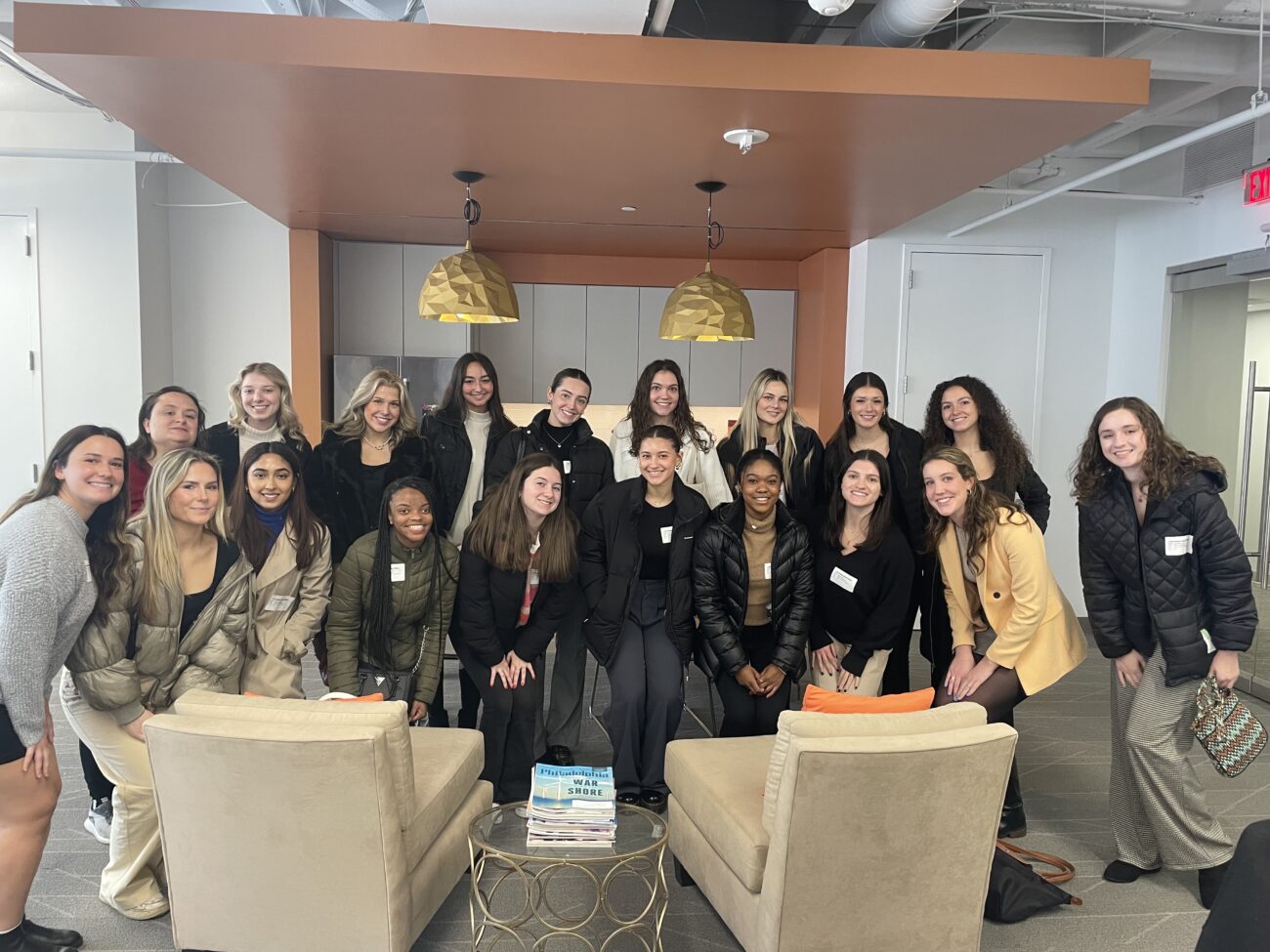Many students attend college in order to find a career in the future. Internships are a great way to help prepare college students for the real world, and can sometimes get them a job on the spot. Most college students have a fear that they will not be able to find a job right out of college, and this can be extremely frustrating. After all of their time, work, and money spent in the pursuit of a degree, it can be disheartening to not find a job. Having an experience with an internship can help alleviate fear and uncertainty of what a student wants to do with their life and career after college. These four important points explain what to expect in an internship as well as why internships can be helpful to college students.
1. Learn lessons that you wouldn’t learn in the classroom.
According to Downs, et al. (1976), “Students are given the opportunity to put organizational and communication theories to practice. Communication problems are confronted not as abstractions, but as specific occurrences with which they must cope” (p. 276). This is important because communication students can learn many different skills that will help in the future when participating in an internship. One can learn from their mistakes through difficult experiences, which help in the future. Having a mentor that takes you under their wing in the work place and shows students the ropes can be helpful for self esteem/self-growing process. Although communication students can learn a lot in the classroom, experience in a workplace provides students with many interactions and is best way to gain that experience which can apply to a future career.
2. Become prepared for the real world.
Having an internship can give students a sample of what life will be like after college when they are thrust into the real world. There are many responsibilities that come with an internship, and that is exactly how a real job will be. Finding a career and becoming adapted to the work force might be more difficult for a student due to; a lack of experience in knowledge and training which one can gain through an internship. Experiencing an internship can make the transition from college to a career, a whole lot smoother. When faced with all of these new responsibilities in a professional place, it can help to make the student feel more experienced and confident once they have a career.
3. Finding what you want/don’t want in your future career.
An important lesson that students can gather from an internship is finding out what they want/do not want in a future career. Taking various classes outside of one’s major can help a student to explore a variety of topics. Having an internship allows for the same effect through exploring a potential career, position, or company. Experiencing an internship can definitely help the student understand what they are looking for and what they want to stay away from when looking for a career.
4. Being prepared for the internship and understanding the benefits.
When preparing for an internship, it is important to be professional and organized. Although not all internships pay, the experience and knowledge can make the effort worth it in the end. If the student is lucky, they can find an internship that will pay them for the work they do. Student internships are defined as, “arrangements whereby students work at off-campus jobs which are related to their academic disciplines and analyze their experiences for academic credit” (Downs, Harper, & Hunt 1976). Having an internship can aid in gaining experience the student’s major. These diverse experiences can set a candidate apart from other prospective candidates in a company’s job search. Not to mention, it also looks great on a student’s resume. Another benefit of having an internship, is that the student is provided with valuable professional contacts.
There are many other benefits that can come from having an internship. Internships can be extremely helpful to students by giving them a job right when the internship ends. If the student is professional and helpful, the employer may consider offering them a position after the internship ends or the student graduates.
Some of the most important reasons to consider an internship:
- Experience and knowledge for future career
- Communication skills in practice
- Some internships will pay the student
- Professional experience on resume for future employers
- Gain useful and professional contacts
- Potential permanent job from the internship
After doing some research on the benefits of internships, I was able to get in contact with a friend of mine, Trisha Kimmel, who is senior at Kutztown University. She has been a communication studies major all four years at her university and had an internship her first semester of senior year. Although her internship was not related to communication studies, she was able to learn many helpful skills from the internship. I asked her a few questions about her experience with the internship and her opinion of how it prepared her for the future.
Trisha Kimmel Interview
1.) Where was your internship?
My internship was at Cleftstone Works in Kutztown.
2.) Do you think it is important for a communications student to have an internship before graduating?
Absolutely! I think it at least gives you a glimpse of the real world, and if you do not like the internship then you know exactly what type of job you don’t want in the future.
3.) What positive things came out of your relationship?
I think it gave me a sense of how hard I have to work to get to where I want to be. It gave me real life examples that could happen in the workplace. It’s challenging to work with all types of different personalities, which you do not always learn how to do in a classroom setting.
4.) How do you think having an internship will affect your future?
I think this internship has prepared me for the future because it has shown me how prepared you need to be for work everyday. Your boss needs you to be needs you to be on you’re A- game and come in every single day with a great attitude. Also, to really get involved in your company, it is important to know everything you can about it so that you can be an expert when it comes to customers. Although it can be time consuming, it looks a lot more professional when you truly care about the experience, and that is when you get the most out of it.
After this interview with Trisha, it is clear just how positive it is for a communication studies major to experience an internship. It also shows that having an internship that is not in your field can be an interesting experience and can teach you a diverse skill set that can set you apart from other candidates for future jobs.
Sarah Donley Interview
Sarah Donley, a previous student of my current professor, Professor Kopacz at West Chester University also explained her experience with internships and how they have positively impacted her education.
1.) What year of college did you have your first internship and how many did you end up having?
In college, I had two internships, both my senior year, in the Fall of 2016. One was the Content Marketing Practicum with Dr. K (helping to redo the website for the COM Dept) and the other was a Social Media Internship for the Eastern Communication Association, facilitated by Dr. Mahoney. Right now, post-grad, I have my third internship as a Social Media Intern at Humanus Corporation.
2.) Where have you had internships?
Both of my first two were on campus, with professors’ offices acting as meeting places (or remote conference calls/Google Drive collaborations). My Humanus internship is at their corporate headquarters in King of Prussia.
3.) Do you think it is important for a Communication Studies student to have at least one internship before graduating?
Absolutely, get as many internships in your field as possible while you’re still in school. Depending on what field you go into, companies will want to see that you’ve got experience. Most companies usually ask for at least 2-3 years of experience in order to consider you for a full-time position. Otherwise, like me, you will still be doing internships or low-paying entry-level jobs until you’ve got enough experience. In social media marketing (my field of interest) for example, it is crucial that you know the different types of software and tactics available to use. I highly recommend taking online courses to build up your knowledge.
4.) What positive things came out of your internships?
I was able to network, learn about tricks of the trade, build up my skills as well as gain new ones, work with multiple people on a project (very different from group projects in class, much more enjoyable) and especially learn from mistakes I made. Having someone act as a sort of mentor at an internship will make or break your experience since that’s where the majority of the learning should come from.
5.) Which internship was your favorite and why?
I did enjoy both of my internships in school, but I have to say my current one is by far my favorite. It’s in a real office setting with people around me to talk with. My mentor is right next to me, but doesn’t hover and gives me a lot of freedom and decision making privileges. It feels like it’s a real job (despite it being unpaid) and I feel like a real member of the staff instead of a temporary helper.
“I got an internship… what do I do now?”
- Be sure to have active participation in the process. (both for the student and employer)
- Set clear expectations for both employer and student.
- Build mentoring into the internship program.
- Keep a journal of experiences.
- Keep in contact with you internship advisor.












